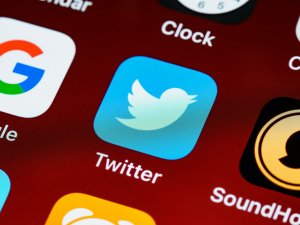- Commercial Contracts
- Media & Privacy
- Media, arts and culture
- Media arts and culture

Shorter Reads
Lads, run your own accounts
If there are not to be more embarrassing social media slip-ups there needs to be joined up thinking between clubs, players, and their social media managers.
2 minute read
Published 15 December 2021
Key information
- Sectors
- Media arts and culture
The memorable but unfortunate 2016 tweet by Victor Anichebe of his advisor’s message beginning “Can you tweet something like … unbelievable support yesterday and great effort by the lads! …” following another poor Sunderland performance exposed Anichebe to ridicule and indicated a lack of authenticity in players’ social media communications.
It was highlighted again recently when Phil Lynch, Chief Executive of Media at Manchester United, explained how he and his team twice a day prepare reports for every Man U player following analysis of “fan sentiment charts” to “counter the narrative”. A usually reserved Gary Neville retorted that Manchester United’s social media team are trying to control their own fans in social engineering and not acting as communication advisors.
Apparently, within seconds of players returning to the dressing room at the end of a match, their clubs’ social media teams are carefully reviewing ‘fan sentiment graphs’ and liaising with the players’ own social media managers who are already busily drafting apologies or congratulatory comment for the players to share on their social media.
Footballers’ brand and image and thus their value to club sponsors and kit providers extend to their social media channels. But, as shown in the Anichebe case, players are famous for getting into trouble on social media.
In March this year, Joe Hart placed the comment “Job done” on his Instagram account immediately after Spurs had lost 3-0 against Dinamo Zagreb. Following a Twitter storm, the post was taken down with him claiming that his social media team had mistakenly thought that Spurs had actually won 3-0.
Even if it was his social media team’s mistake, perhaps he should have been smart enough to read it before it was posted. And only last month, Bruno Fernandes, following Man U’s 2-0 defeat to their “noisy neighbour” tweeted to his 2.3 million Twitter followers “Gooood vibes”. The tweet included a photograph showing Arsenal forward Gabriele Martinelli celebrating during a training session with his Arsenal teammates. The embarrassing blunder was shared again and again by football fans on Twitter.
Football clubs understandably employ armies of reputation managers to manager a player’s online brand. In fact, it is highly unlikely that a club will be liable for the actions of players when they make inflammatory comments on social media. However, such comments can certainly damage club and players’ brands potentially affecting outside investment in those brands.
But clubs cannot have it both ways. They, presumably, encourage and permit the likes of Marcus Rashford to come out with spontaneous posts on their social media platforms when this is for the ‘social good’ being positive for both club and player brand, but clearly wish to nanny those whom they perceive as less responsible players.
Overall, as Lewis Wiltshire, former Head of Sport at Twitter, pointed out, the issue has only been recently highlighted because the team in question is Manchester United and answers Gary Neville’s missives by saying that players are damned if they say nothing in response to fans’ online anger, accused of hiding, but if they blurt out a response, they may entirely misjudge the situation. Thus, PR experts are generally essential in acting as moderators.
But perhaps, notwithstanding the pressures for immediate social media comment by players, the clubs and players’ social media teams should ensure that what is being said by a player is, and comes across as, authentic. Provided a player’s online presence is perceived to be authentic then that should not negatively impact or damage club or player brands.
Sponsors hold on players
As regards the brands sponsoring players, they do already, at least in some cases, have a hold on the player’s online presence. For instance, Paul Pogba’s advisors revealed that he would not be able to tweet at certain times because Adidas, one of his sponsors, had exclusive control of his social media during those times.
Manchester United has stressed that it is not writing social media posts for its players and it is the players’ own social media managers with whom they liaise who are responsible for the players’ social media presence.
Clearly if there are not to be more embarrassing social media slip-ups there needs to be joined up thinking between clubs, players, and their social media managers.
Earlier this year a reportedly furious Phil Foden sacked his social media managers, Ten Toes Media, after his Twitter account ‘called out’ PSG forward Kylian Mbappe. Ten Toes responded saying that they never post anything without player or player’s representative approval, but the ever-vigilant Gary Neville responded tweeting “Lads run your own accounts! Your independent thought and authenticity is at stake. It’s your voice, not anyone else’s.”
It is hard not to agree with that sentiment.
Shorter Reads
Lads, run your own accounts
If there are not to be more embarrassing social media slip-ups there needs to be joined up thinking between clubs, players, and their social media managers.
Published 15 December 2021
Associated sectors / services
The memorable but unfortunate 2016 tweet by Victor Anichebe of his advisor’s message beginning “Can you tweet something like … unbelievable support yesterday and great effort by the lads! …” following another poor Sunderland performance exposed Anichebe to ridicule and indicated a lack of authenticity in players’ social media communications.
It was highlighted again recently when Phil Lynch, Chief Executive of Media at Manchester United, explained how he and his team twice a day prepare reports for every Man U player following analysis of “fan sentiment charts” to “counter the narrative”. A usually reserved Gary Neville retorted that Manchester United’s social media team are trying to control their own fans in social engineering and not acting as communication advisors.
Apparently, within seconds of players returning to the dressing room at the end of a match, their clubs’ social media teams are carefully reviewing ‘fan sentiment graphs’ and liaising with the players’ own social media managers who are already busily drafting apologies or congratulatory comment for the players to share on their social media.
Footballers’ brand and image and thus their value to club sponsors and kit providers extend to their social media channels. But, as shown in the Anichebe case, players are famous for getting into trouble on social media.
In March this year, Joe Hart placed the comment “Job done” on his Instagram account immediately after Spurs had lost 3-0 against Dinamo Zagreb. Following a Twitter storm, the post was taken down with him claiming that his social media team had mistakenly thought that Spurs had actually won 3-0.
Even if it was his social media team’s mistake, perhaps he should have been smart enough to read it before it was posted. And only last month, Bruno Fernandes, following Man U’s 2-0 defeat to their “noisy neighbour” tweeted to his 2.3 million Twitter followers “Gooood vibes”. The tweet included a photograph showing Arsenal forward Gabriele Martinelli celebrating during a training session with his Arsenal teammates. The embarrassing blunder was shared again and again by football fans on Twitter.
Football clubs understandably employ armies of reputation managers to manager a player’s online brand. In fact, it is highly unlikely that a club will be liable for the actions of players when they make inflammatory comments on social media. However, such comments can certainly damage club and players’ brands potentially affecting outside investment in those brands.
But clubs cannot have it both ways. They, presumably, encourage and permit the likes of Marcus Rashford to come out with spontaneous posts on their social media platforms when this is for the ‘social good’ being positive for both club and player brand, but clearly wish to nanny those whom they perceive as less responsible players.
Overall, as Lewis Wiltshire, former Head of Sport at Twitter, pointed out, the issue has only been recently highlighted because the team in question is Manchester United and answers Gary Neville’s missives by saying that players are damned if they say nothing in response to fans’ online anger, accused of hiding, but if they blurt out a response, they may entirely misjudge the situation. Thus, PR experts are generally essential in acting as moderators.
But perhaps, notwithstanding the pressures for immediate social media comment by players, the clubs and players’ social media teams should ensure that what is being said by a player is, and comes across as, authentic. Provided a player’s online presence is perceived to be authentic then that should not negatively impact or damage club or player brands.
Sponsors hold on players
As regards the brands sponsoring players, they do already, at least in some cases, have a hold on the player’s online presence. For instance, Paul Pogba’s advisors revealed that he would not be able to tweet at certain times because Adidas, one of his sponsors, had exclusive control of his social media during those times.
Manchester United has stressed that it is not writing social media posts for its players and it is the players’ own social media managers with whom they liaise who are responsible for the players’ social media presence.
Clearly if there are not to be more embarrassing social media slip-ups there needs to be joined up thinking between clubs, players, and their social media managers.
Earlier this year a reportedly furious Phil Foden sacked his social media managers, Ten Toes Media, after his Twitter account ‘called out’ PSG forward Kylian Mbappe. Ten Toes responded saying that they never post anything without player or player’s representative approval, but the ever-vigilant Gary Neville responded tweeting “Lads run your own accounts! Your independent thought and authenticity is at stake. It’s your voice, not anyone else’s.”
It is hard not to agree with that sentiment.
Associated sectors / services
- Commercial Contracts
- Media & Privacy
- Media, arts and culture
- Media arts and culture
Need some more information? Make an enquiry below.
Enjoy reading our articles? why not subscribe to notifications so you’ll never miss one?
Subscribe to our articlesMessage us on WhatsApp (calling not available)
Please note that Collyer Bristow provides this service during office hours for general information and enquiries only and that no legal or other professional advice will be provided over the WhatsApp platform. Please also note that if you choose to use this platform your personal data is likely to be processed outside the UK and EEA, including in the US. Appropriate legal or other professional opinion should be taken before taking or omitting to take any action in respect of any specific problem. Collyer Bristow LLP accepts no liability for any loss or damage which may arise from reliance on information provided. All information will be deleted immediately upon completion of a conversation.
Close









































